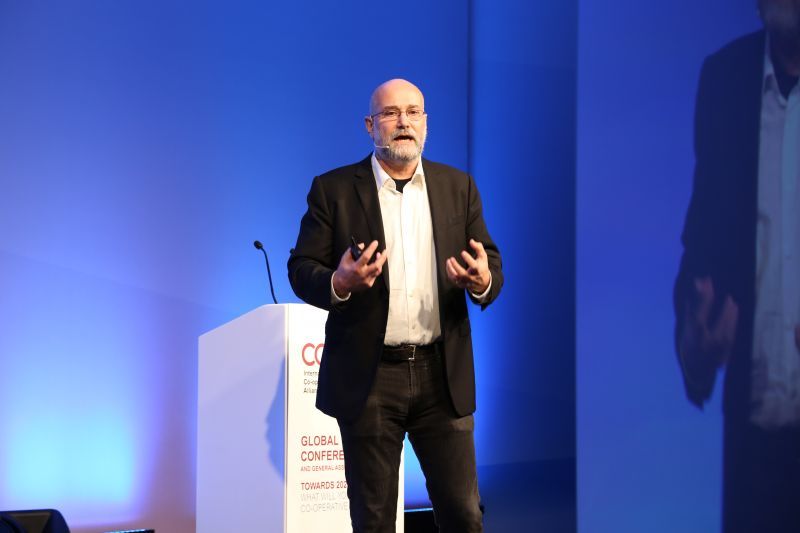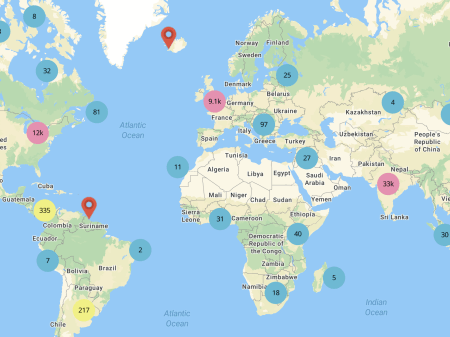
Yochai Benkler has been studying commons and co-operation for over 20 years. At the Alliance’s Global Conference in Antalya, Turkey, looked at how the ethic of peer-to-peer production could be connected to the reality of co-operatives.
Prof Benkler teaches at Harvard Law School and started researching Wikipedia when it was just six months old. He is no stranger to the co-operative movement, having been a member and treasurer of the Kibbutz Shizafon, a co-operative community in Israel.
He explained how the rise of the free culture movement was based on the idea that there is a way to construct shared wealth without having exclusive copyright rights.
The rational actor model of analysis would assume that people do not co-operate, but the reality is that people tend to co-operate, said Yochai Benkler.
“You can’t free markets from the social context in which they exist,” he added.
“Can co-operation in commons led to co-operativism in the market space?” he asked delegates. He described how a new family of businesses was emerging, with the likes of Uber, Upwork and TaskRabbit. “How to build co-operativism so that drivers own Uber?” he said.
Couchsurfing is now being challenged by AirBnB, which forecasts revenues of $10bn in 2020. “We need to take back the idea of sharing and co-operation to a distributing market where people are alien from each other,” said Yochai Benkler.
Another domain where co-operatives could be more active is open source software. According to Prof Bankler, the majority of income for software developers does not come from the actual software, but from support services and knowledge based on software. Professionals could form worker co-operatives to provide that support, he said.
Co-operatives can also learn from commons based production in terms of engagement. Governance should not be just about representative democracy, he said, but about actual engagement, which is very strong within the online practice. “There are loads of platforms online that try to get this not just listen every four years and businesses being much more participatory,” he said.
An alternative to Uber, La Zooz is an attempt to implement real-time ridesharing, but without the company or a central server, using the technology similar to the one of Bitcoin. Drivers earn zooz tokens as they drive by installing an app on their phone, which they can then use to get lifts. Co-ops should think of such models, said Prof Benkler. “This is the time for you to start teaching what you know,” he told delegates.
“It would be wonderful if Wikipedia and the co-operative movement became a transformational force to take capacity to embed production in social co-operation, building a world that is sustainably growing and responsive to human needs,” he said.
Photo: Yochai Benkler speaking at the Global Conference in Antalya




